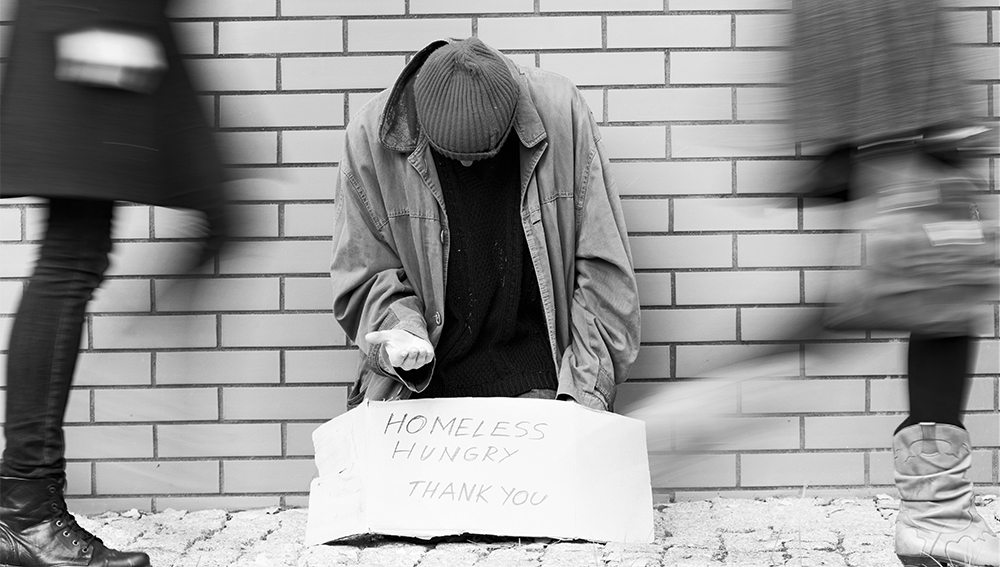Reveal Compassion With the Invisible Neighbors Study
Savannah Aleckson
Events Director/Adjunct Instructor
Read more from Savannah
Invisible Neighbors is a faith-based study perfect for those looking to expand their knowledge and gain practical insight on how best to care for the poor. Written by John Ashmen, a long-time veteran in service to the poor and president of Citygate Network (a community of faith-based organizations providing services to the homeless), this expertly written study convicts and equips its participants to reach out to their neighbors in need.
Ashmen’s non-partisan yet unflinchingly honest views on poverty are refreshing; he does not merely recite rhetoric but has a balanced perspective on complex issues of poverty. Ashmen weaves Scripture throughout this study, not merely in passing, but as the focal point of his approach to poverty alleviation.
Ashmen deftly paints the picture of poverty in America, helping us critique and reimagine current interventions—both public and private—on behalf of the poor and consider practical ways in which compassionate Christians can make a difference. Here are some of the main takeaways:
It’s time to widen our circles. There is abundant evidence that social capital, or healthy relationships with people both like and unlike yourself, are critical to a flourishing life, particularly for the poor. However, an increasingly stratified society has caused a degradation of community, resulting in increased isolation, loneliness, and subsequent hopelessness. We must revive care in our communities—not just for those who look and act like us, but particularly for those on the margins of society in most dire need of a loving community.
It’s time to stop passing the buck. Scripture is clear that care for the poor is a core duty of God’s people. However, as parachurch organizations, social service agencies, and government programs step on to the scene, the Church has increasingly been content to hand off its sanctified duties to those “more qualified,” a shame and an ultimate injustice to the poor. It’s time for the Church to take back this honorable calling, for God’s glory and for the good of our neighbors in need.
It’s time to enact God’s compassion, generosity, and care. God’s concern for the oppressed and marginalized is evident throughout scripture; time and again, he instructs His people to care for the poor, often at great personal sacrifice (Deuteronomy 15:11, Luke 12:33). Though there is some room for reasonable disagreement on what “care” ought to look like, the bottom line is that Christians ought to be involved in alleviating poverty, and effective, life-changing care can only happen when we allow God’s generosity to flow through us.
One of the best features of this study is that Ashmen does not dwell on philosophy alone but offers practical guidance on tangible ways Christians can get involved in the fight against poverty. For the many Christians who understand their duty to the poor but don’t know how to fulfill it in the day-to-day, this is welcome advice.
We love that Ashmen is unwavering in his call for Christians to become personally involved in the fight against poverty. While he is, of course, appreciative of those who give financially to keep ministries running smoothly, he contends that this does not absolve the Christ-follower from personal intervention, particularly in the ever-important work of relationship building. The emphasis on healthy relationships and community is prudent.
Invisible Neighbors does not share many ideas for church leadership on how a congregation as a whole can get involved; rather, it focuses on individuals. While Ashmen paints an accurate and compelling picture of poverty in America today and rightly urges the Church to get involved, he does not spend much time differentiating between effective and ineffective modes of charity. Mere involvement is not a sufficient end; rather, the involvement ought to be prudent and effective in its ability to point the poor toward a flourishing life. (For those wanting to augment their understanding of helpful vs. harmful charity, check out True Charity University.)[/et_pb_text][et_pb_text _builder_version=”4.9.2″ _module_preset=”default” custom_padding=”35px|||||”]
Invisible Neighbors is a six-part series, with each part containing three subsections. The study can be completed in six weeks or, if you’d like to take your time digging into the nuanced topics, 18 weeks.
Each part consists of compelling true stories from men and women who have experienced homelessness; a historical context of poverty alleviation efforts; facts and statistics about homelessness, mental health issues, and addiction in America; and ideas for meaningful engagement with the poor, all undergirded by a solid biblical foundation.
The end of each subsection within the six parts contains a discussion guide designed to help participants think deeply and share candidly with each other about issues of poverty. In addition, each subsection contains a “Go Deeper” section with video suggestions to help you and your group gain additional perspective.
This study is ideal for those who want a biblical perspective on individual, church, and societal responsibilities to the poor, as well as practical advice for productive interaction with those experiencing poverty. Invisible Neighbors is a perfect fit for any church small group college-age and older or for nonprofit staff/volunteers interested in issues of poverty (homelessness in particular)—it would even work well for individual study. For the Christian wanting to understand more fully what Scripture has to say about poverty and its modern-day implications, this is a great resource. Invisible Neighbors is available for purchase at this link.






